Parasitoids
Parasitoids are a type of parasite that ultimately kills its host. They are commonly found in the insect world and play a significant role in controlling insect populations in various ecosystems. Understanding the life cycle and ecological impact of parasitoids is essential in the field of biology.
Life Cycle
The life cycle of a parasitoid typically involves four stages: egg, larva, pupa, and adult. The adult female parasitoid lays her eggs either inside or on the surface of the host organism. Once the eggs hatch, the parasitoid larvae feed on the host's tissues, eventually leading to the death of the host. The parasitoid larvae then undergo metamorphosis and emerge as adult parasitoids, ready to continue the cycle.
Ecological Impact
Parasitoids play a crucial role in regulating insect populations in various ecosystems. By preying on insect hosts, they help to control pest populations and maintain ecological balance. This natural form of pest control can be harnessed for agricultural and environmental purposes, reducing the need for chemical pesticides.
Study Guide
- Describe the life cycle of a parasitoid and compare it to other types of parasites.
- Discuss the ecological importance of parasitoids and provide examples of how they contribute to pest control.
- Explain the concept of host-parasitoid interactions and the co-evolutionary arms race between them.
- Investigate the potential applications of parasitoids in biological pest control and sustainable agriculture.
◂Biology Worksheets and Study Guides High School. Plant structure and function
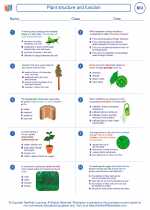
 Worksheet/Answer key
Worksheet/Answer key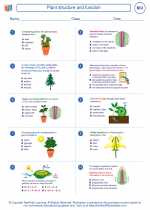
 Worksheet/Answer key
Worksheet/Answer key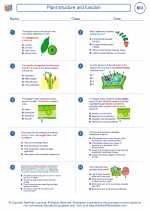
 Worksheet/Answer key
Worksheet/Answer key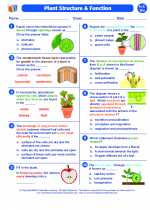
 Vocabulary/Answer key
Vocabulary/Answer key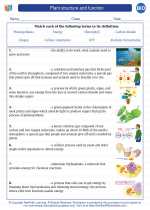
 Vocabulary/Answer key
Vocabulary/Answer key
